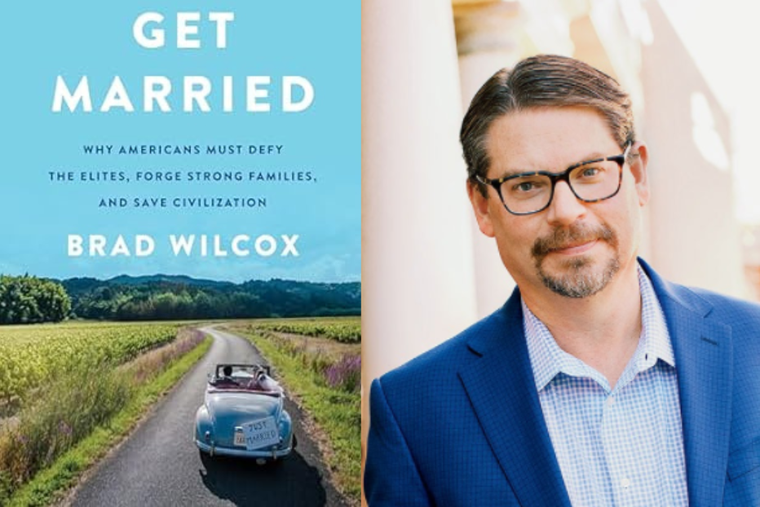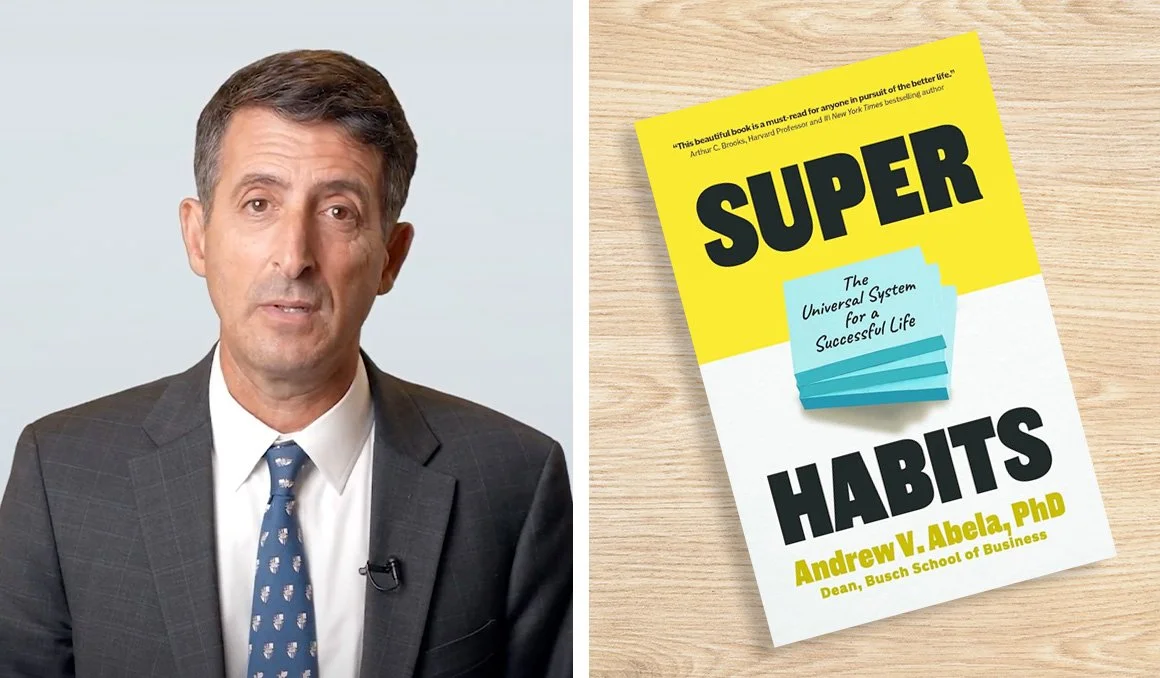#070: Want a Great (Future) Marriage? Learn to Handle Conflict | Part 2
After his parents’ divorced, Joey feared repeating the same mistakes in his own marriage. He wanted to know, “How do I not repeat my parents’ mistakes?” He wanted authentic love but had no idea how to build it. It set him on a quest for answers and a roadmap for love.
In this episode, you’ll hear a talk which offers a roadmap based on research, time tested couples, and the wisdom of Christianity. You’ll also learn:
4 signs that your relationship or marriage is headed off a cliff, according to researchers
The biggest area of conflict in marriage and what to do about it
Practical tips to make conflict healthy
The one thing that makes conflict less scary and more manageable
A resource for handling conflict better
If you want a build a healthy relationship and great marriage, this episode is for you.
Listen to the whole talk: 7 Tips to Build a Thriving & Divorce-Proof Marriage
Links & Resources
Full Disclaimer: If you purchase through the links on this page, your purchase will support Restored at no additional cost to you. Thank you!
To leave feedback, comment below or contact us.
Inquire about an event: events@restoredministry.com
Enjoy the show?
To be notified when new episodes go live, subscribe below.
As a bonus, you’ll receive our free ebook, 5 Practical Tips to Cure Loneliness!
Transcript
Transcript produced by artificial intelligence. Please pardon any errors!
After my parents separated and later divorce, I feared repeating the same cycle in my own relationship and marriage one day. And so I became obsessed with the questions. How do I avoid that? How do I not repeat my parents' mistakes? Because I wanted authentic love, but had no clue how to build it. I think that's true for some many of us, we all want.
But if we're honest, we're not quite sure how to go about building a healthy relationship and great marriage. I think that's even more true for those of us who come from broken families. Nobody's showed us how to build love and a marriage. And that leaves us feeling discouraged and even hopeless to the point where we give up on love.
We give up a marriage, we give up on commitment and we even settle for the. In this episode, I'm going to share a talk that offers a simple roadmap to build authentic love. And so you're going to hear a snippet of that talk, which touches on a few things. First four signs that your relationship or marriage is headed off a cliff.
According to researchers, the biggest area of conflict in marriage and what to do about it. Practical tips that you can use to make conflict healthy. The one thing that makes conflict less than. And more manageable and finally, a resource that you can use to handle conflict better to make conflict healthier in your relationship.
And so if you want a healthy relationship in great marriage one day, whether or not you come from a broken family, keep listening.
welcome to the restored podcast, helping you heal and grow from the trauma of your parents. Separation or broken marriage. So you can feel whole again. I'm your host, Joey Poncherelli. Thank you so much for listening. This is episode 70 and that's part two of a small series. And what you're about to hear is a talk I gave to the college students of Ave Maria university in Florida.
The talk is titled seven tips to build a thriving and divorce proof marriage, actionable advice from research, the church and time tested. And so the content of the talk is not just my opinion or my limited experience within marriage, but it's really based on psychological research advice from really beautiful married couples who have built amazing marriages and finally wisdom from Christianity on marriage.
By the way, if that's not what you believe, you're not a Christian, you're still going to get a lot out of this. Talk, my challenge to you is just go into it with an open mind. There's a lot of human wisdom overall in this. I've given the sock primarily to college students and young adults. I think it's perfect for that audience, but older audiences have found it helpful as well.
But some of the feedback we've gotten from the young people, one woman who happened to be a newlywed, she was just married in the last six, seven months when she heard the talk, she listened to it three times in a row because she found it so helpful that the host of one of the events where I gave the talk said this, she said, a girl I just talked to on the phone, said that she was watching over zoom and thought it was so good.
Another young woman said it was probably the best talk that she's. Heard so lots of good feedback. I don't say that to boast, but just to assure you, this is worth your time. And so here's a snippet of that talk.
So tip number four, set healthy expectations for your marriage. Tip number five, learn to handle. This is so important. Um, one book said that conflict is the price you pay for intimacy. Conflict is the price you pay for intimacy that comes from the book, saving your marriage before it starts by doctors, Les and Leslie Parrott.
They're two psychologists. They're a married couple of men and a woman with the same name. It's hilarious. And so it's so true. It's so true. As you got close to someone in your life, conflict is inevitable. And in fact, if you're avoiding conflict in your serious relationship, it's usually not a good sign.
It either means you're a Saint or there's something off. And so the goal is not to avoid conflict, but rather to make conflict healthy, to make conflict healthy. So how do you do that? Dr. John Gottman, you might've heard of him. He and his team of researchers have researched. Marriage and conflict that for the past.
And what they would do is they invite married couples to their lab, which was this fancy apartment in Seattle, and then invite them out there on the west coast. And they would observe them over a weekend, let's say, and especially observed how they handle conflict. And now, supposedly this is kind of insane.
Supposedly they can predict with about 95% accuracy. Whether the couple is going to stay married or eventually get divorced. 95% accuracy. They're looking for four things, four bad signs that say the marriage is in trouble. Dr. Gottman calls those four signs, the four horsemen of the apocalypse. I'm going to list them off quickly and then we'll go through each.
The first one is criticism. Two is contempt. Three is defensiveness for his Stonewall. Criticisms psychologists say that criticism and complaining are different. They're not the same complaining is saying something about someone's actions, right? It's critiquing actions. Let's say, whereas a criticism is attacking a person attacking their character.
They're not the same. Contempt is similar to criticism, but different. Dr. Gottman says this, he says, contempt is the intention to insult and psychologically abuse your part. And this looks like by the way, in a relationship, it looks like name calling. It looks like sarcasm. It looks like mockery.
Defensiveness is really the result of criticism and contemporary. We feel so attacked. We just put up our shield and defend ourselves. And this looks like blaming. It looks like making excuses and being unwilling to take responsibility. Stonewalling is a result of all these, right. These go into progression.
Stonewalling is where we just feel so overwhelmed. We're just done. We just emotionally check out. We shut down. We avoid our spouse at least emotionally. And, uh, supposedly 85% of Stonewall's are men. So this is something that we need to look out for our guys, especially, but these four signs is for bad signs.
Don't mean that your marriage is due. They just mean you're you're in trouble. And if these become habits, you're really heading off of a ledge. And so you need professional hub. Like now, if you see these in your relationship, those are the bad ways to handle conflict. How do we handle conflict in a healthy way?
There's five tips from that book, saving your marriage before it starts with the one at which I want to share with you, the first one is pick your battles, pick your battles, let the small things go get used to giving your spouse. This has been so helpful for me in my own marriage. My wife makes a lot of mistakes.
No, I'm just kidding. I'm definitely the one who makes more mistakes. Um, but you really, we can let things go. You don't need to voice your opinion about every little thing that your spouse does. Like you can let things go. You can bite your tongue. If they're big things, obviously bring those up. You can let the small things go extend grace.
Another thing you can do is practice. Put yourself in their shoes. It really requires you to detach from your emotions because in conflict, it's really hard to do this. And so one tactic they recommend is repeating what you hear your spouse saying, just to make sure you can fully understand where they're coming from.
Say it back to them. They say to define the real issue. So when tensions rise, you can ask the question, like, what are we really fighting about? Define what the fight is really about until both of you understand a little hint. It might not be the thing you're actually fighting about. It's usually something that's under the surface.
It's bigger than you really need to address. Take a break. They say, so our marriage, counselor, my wife, and I've been in marriage counseling. Uh, he taught us this little tactic called calling a time out. So when things get intense, uh, you needed to call a time out. So how does this work? It's a simple tactic before conflict.
You agree to a timeframe for a timeout. Okay. And it sounds like we're in a preschool, but it's sometimes we feel like that. But this is really good. So anywhere from 15 minutes to 24 hours, you set a set time. Let's say it's like an hour. And then in a conflict, when you guys are struggling, one of you can say, Hey, like I need, I need a time out.
And so then you take the time out. And then the person who calls a time out, they're the ones who keeps track of the time. And there were zoom the conversation as well. This is so helpful. It's been really helpful for my wife and I, because when we're emotional, especially when we're angry, our counselor taught us that our IQ.
By about 30 points or for those of us like me with an average IQ, that means like in the range of 70, which psychologists say is like the level of mental disability. And so we're literally trying to fight when we're super disabled and then finally actually resolve conflicts. So growing up, uh, we, my siblings and I barely saw conflict.
My parents. And they would tell you this, the way that they handle conflict, they would fight things, get loud. And then one or both of them will walk their separate ways. Like, I'm sure you guys have experienced that in your homes as well. So it set a horrible example for us to the point where I became really afraid of conflict and really unsure about how to handle it.
And so guys make sure you actually resolve conflict follow through here. And when you become parents, this is super, super important. When you become parents, make sure that your kids know that you've. Problems that they saw come up. Okay. So if you have a fight in front of your kids, make sure they know it's resolved.
Whether you do that in front of them, or later you go to them and say, Hey, mommy and daddy, we resolve this. My wife and I are trying to get in this habit. Now we've been doing pretty well with it. Um, where if our daughter who's seven months, right? She's, doesn't have an explicit memory at this point. Um, she sees this fight.
This is us fighting. We try to show her that, okay, we've made up we're we're good. Now we resolve this and we even say, sorry to her, that she had to experience. And so super good to make sure you resolve things. So if you want more tips like that, get the book, saving your marriage before it starts a few final things on handling conflict, uh, build trust, right?
Uh, conflict is so much easier when trust is high. Okay. How do you build. Th this is a whole nother talk too, but two, two quick things, vulnerability and consistency, vulnerability inconsistency, opening yourself up to even a scary extent and then continuing to show up so that, you know, you can rely on the other person, a business writer, pat Lencioni, Catholic business writer, pat Lynch.
He only says that trust makes conflict. The pursuit of truth. Trust makes conflict, that pursuit of truth. And so basically when we trust each other, when there's a conflict about maybe like, what should we do in this situation? That conflict is ordered to finding the best possible solution. It's not just a battle of egos.
Money is a huge area of conflict. It's the biggest area of conflict for married couples. It's one of the top causes of divorce, as I'm sure you guys have heard. So talk about it. Talk about money, make a plan for your money. Get on the same page with your money. I recommend Dave Ramsey's course. You can just look up financial peace university.
It eventually did really help my wife and I, and we have a good handle on our finances. So tip number five, learn to handle conflict. Tip number six, love your spouse. How they want to be loved.
If you want to listen to the whole talk, you can go to restored ministry, ministry, singular. Dot com slash marriage talk again. Restored ministry.com/marriage talk. Marriage talk is just one word, or you can just click on the link in the show notes. And in case you're not aware of one of the things that we offer as a nonprofit is coming into your school university, church, or event to give talks like the one you just heard.
And we have talks specifically for people who come from broken families and then more general talks as well. And so I've given talks for the archdiocese of Denver. The diocese of San Diego focus, the fellowship of Catholic university students, Franciscan university of Steubenville, avid Marine university, and the archdiocese of San Francisco.
And so if you're interested in booking a speaking engagement, we'd love to speak with you. You can email us@eventsatrestoredministry.com. Again, events@restorativeministry.com. We'd love to speak with you about possibly serving you. The resources mentioned during the show notes at restored minutes. Dot com slash 70.
Thank you so much for listening. If this has been useful, feel free to subscribe. And if you know, someone is really struggling because of their parents' divorce or broken marriage, share this podcast with them. Always remember you are not alone. We're here to help you feel whole again and become the person that you were born to be.








With six divorces between her parents and in-laws, Kaseena Birnbaum once assumed she’d rack up divorces too. But when her own marriage hit a breaking point, she chose a different path.